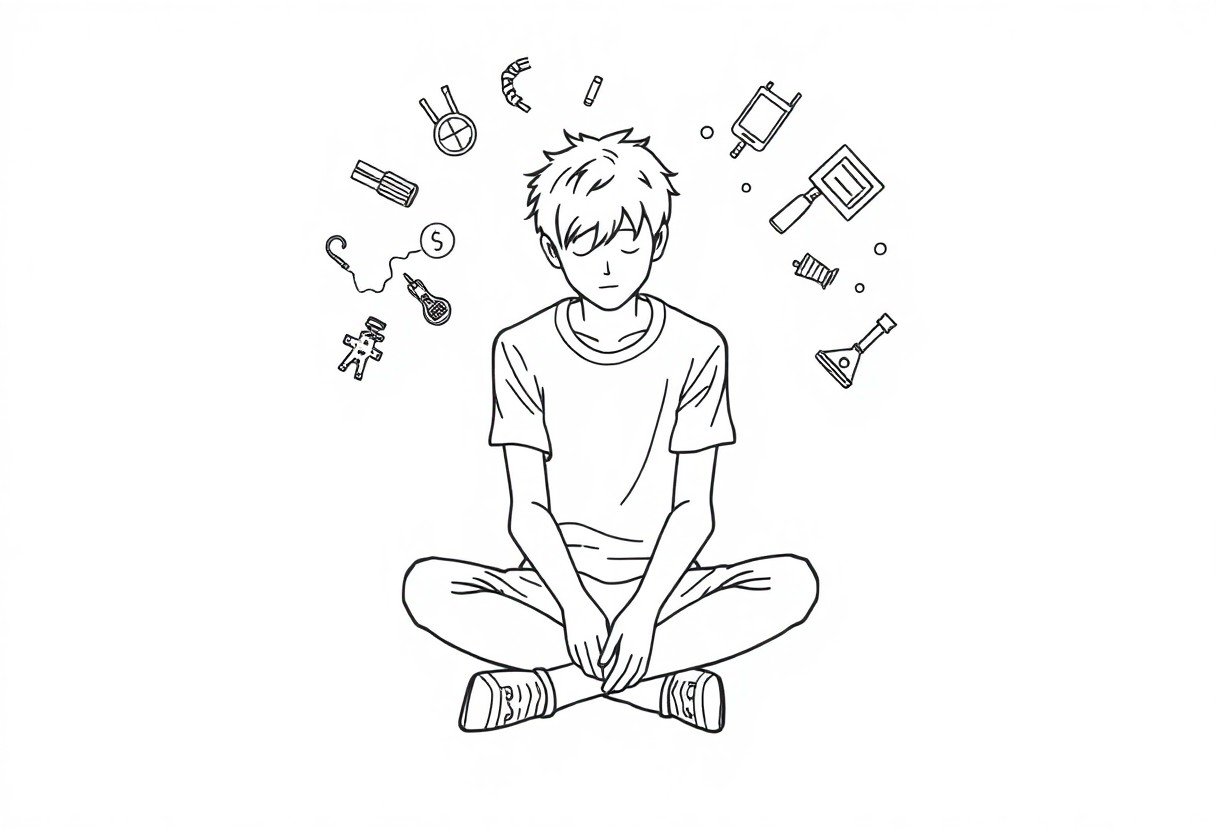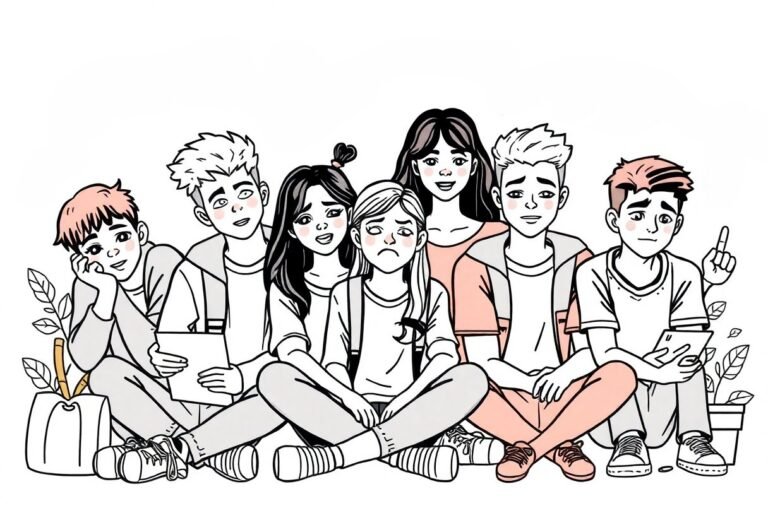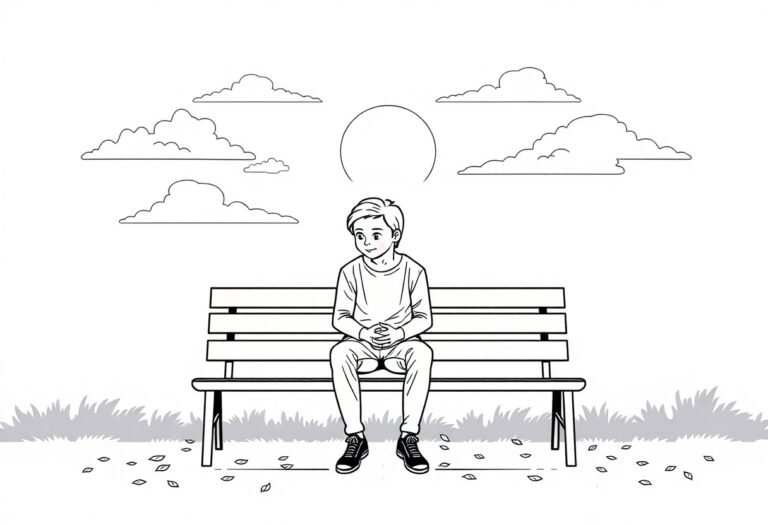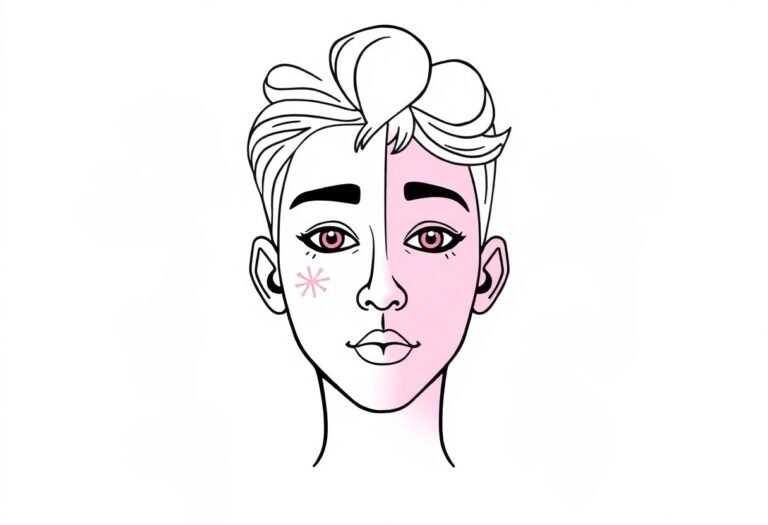What Are The Warning Signs Of Self-Harm And Suicidal Thoughts In Teens?
Most parents and guardians are unaware of the subtle yet alarming warning signs of teen self-harm and suicide that may indicate their teen is struggling with self-harm or suicidal thoughts. Recognising these signs early can be vital in getting your child the support they need. This post will provide you with key indicators to watch for, such as changes in behaviour, emotional upset, and social withdrawal. By understanding these signs, you can take proactive steps to help your teen find the help they deserve and thus promote a positive path forward.
Key Takeaways:
- Changes in mood or behaviour, such as increased irritability, withdrawal from friends, or a noticeable decline in academic performance, can indicate distress.
- Physical signs, including unexplained injuries, scars, or wearing long-sleeved clothing in warm weather, may suggest self-harm behaviours.
- Expressing feelings of hopelessness, worthlessness, or repetitive talk about death can be alarming indicators of suicidal thoughts.
- Sudden changes in eating or sleeping patterns, such as insomnia or increased appetite, can also signal emotional struggles.
- Loss of interest in activities that were once enjoyable and a lack of motivation or energy may highlight underlying issues related to mental health.
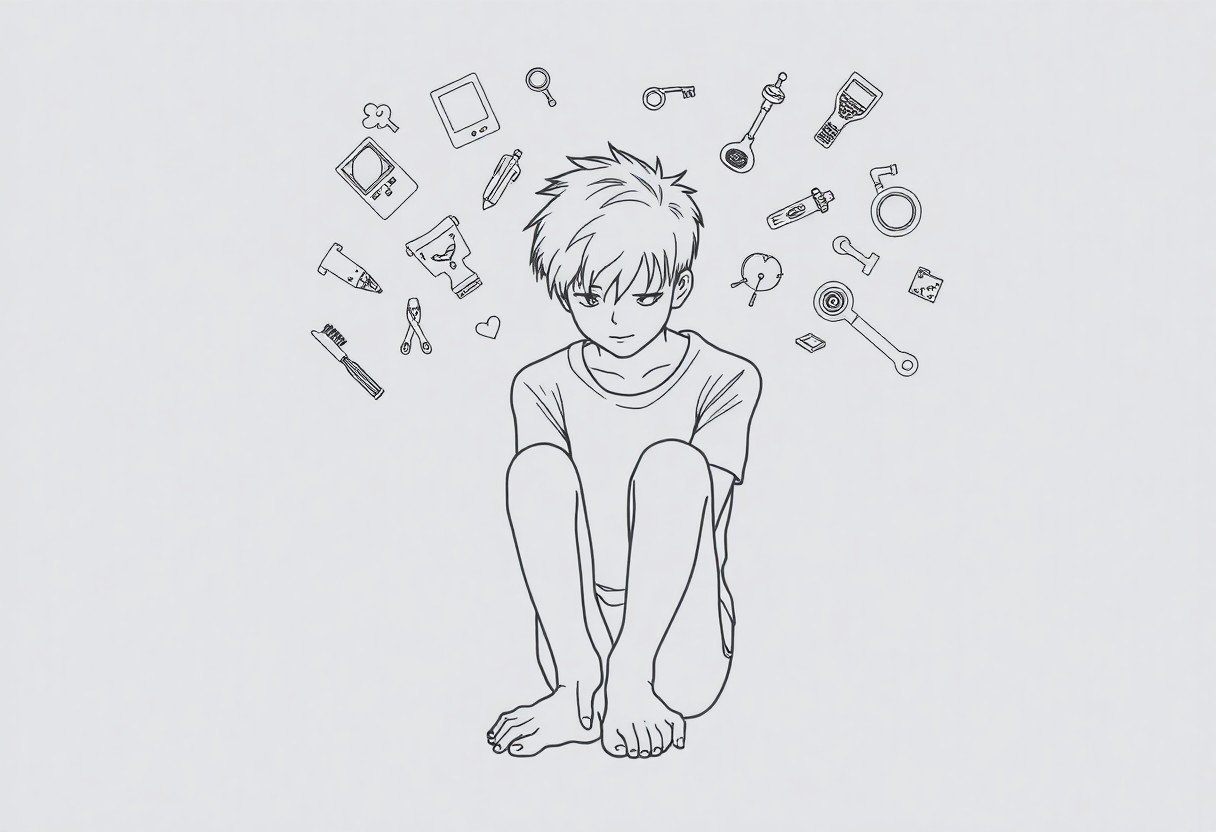
Understanding Self-Harm
A deep understanding of self-harm is imperative for recognising its signs and seeking help. This behaviour often stems from overwhelming emotions and can manifest in several ways, varying from physical actions to emotional struggles. It is vital to approach this topic with sensitivity, as many teens engage in self-harm as a coping mechanism.
Definition and Types of Self-Harm
Against a backdrop of emotional turmoil, self-harm is defined as the intentional act of inflicting injury on oneself. Types of self-harm include: cutting, burning, scratching, punching, hair pulling and interference with healing. Perceiving these behaviours as signs of distress is vital for timely intervention and support.
Reasons Behind Self-Harm in Teens
Below the surface, self-harm often reveals profound emotional pain and distress experienced by teens. It can stem from various factors, including trauma, emotional disorders, or feelings of inadequacy.
The definition of self-harm reasons includes emotional regulation issues, where you might feel a need to express inner turmoil physically. Other contributing factors can be a lack of support systems or a sense of isolation. Understanding your emotions is imperative, as is recognising when help is needed. Teens frequently engage in self-harm as a misguided attempt to cope, and this behaviour can escalate if not addressed. It’s important to seek supportive resources and open discussions about these feelings to promote healing.
Recognising Warning Signs of Self-Harm
Some warning signs may indicate that a teen is struggling with self-harm. Being aware of these signs is necessary for you to provide the support they need. Self-harm can manifest in various ways, and early detection can lead to timely intervention.
Physical Indicators
Signs of self-harm can be evident through physical indicators such as unexplained cuts, bruises, or burns on the skin. You might also notice that they wear long sleeves or pants, even in warm weather, which can be an attempt to hide their injuries. Pay attention to any recurring injuries that seem inconsistent with the explanations given.
Behavioral Changes
Recognising the behavioural changes in a teen can be a vital step in identifying self-harm tendencies. Look for signs such as withdrawal from social activities, changes in eating or sleeping patterns, and a decline in academic performance. These shifts can often indicate emotional struggles that require your attention.
Warning Signs of Teen Self-Harm and Suicide
Being mindful of the warning signs of teen self-harm and suicide is crucial for early intervention and support. Understanding these indicators can empower parents and guardians to take proactive measures in safeguarding their teens’ mental health.
Due to the emotional turmoil that often accompanies self-harm, teens may exhibit increasing irritability, mood swings, or a sudden disinterest in hobbies or friendships they once enjoyed. Isolation from family and friends is common and can be heightened if they feel ashamed or embarrassed. You should also be mindful of any engagement in risky behaviours or substance abuse, as these could be attempts to cope with their feelings. Taking note of these changes can empower you to offer the necessary support before the situation escalates.
Understanding Suicidal Thoughts
Once again, it’s important to recognise that suicidal thoughts can affect anyone, particularly teens who may feel overwhelmed by their circumstances. These feelings often stem from a sense of hopelessness or despair, making it vital for parents and guardians to be aware of subtle changes in behaviour. Open communication and emotional support can be the lifeline your teen needs during these challenging times.
Defining Suicidal Thoughts
About suicidal thoughts, they refer to the contemplation or desire to end one’s life. They can range from fleeting considerations to detailed plans, indicating the need for immediate intervention. Understanding the nuances of these thoughts is important in identifying when your teen may need professional help.
Risk Factors for Suicidal Ideation
Understanding the various risk factors for suicidal ideation can help you identify potential warning signs in your teen. These factors may include:
- Previous self-harm
- Chronic depression or anxiety
- Substance abuse
- Trauma exposure
- Social isolation
- Family history of mental illness
After recognising these risk factors, you may be better equipped to offer support and seek professional guidance when necessary.
For instance, teens experiencing chronic depression or anxiety are more susceptible to suicidal thoughts. This may be exacerbated by a lack of social support, leading to feelings of loneliness and despair. Identifying signs of social isolation or changes in behaviour is critical, as these can contribute to a downward spiral in mental health. Staying informed about these risk factors can empower you to take proactive steps in helping your teen. After understanding these intricacies, it’s important for you to engage in open dialogues with your teen about their feelings and experiences.
Warning Signs of Suicidal Thoughts
Keep an eye out for warning signs that may indicate suicidal thoughts in teens. Recognising these signs early can make a significant difference in addressing their feelings and providing the necessary support. Changes in mood, behaviour, and social interactions can provide important clues about their mental health. Being attentive to your teen’s emotional state can help you intervene before it’s too late.
Verbal Cues
Among the most telling indicators of suicidal thoughts are verbal cues. If your teen is expressing feelings of hopelessness, mentioning plans for self-harm, or discussing their wish to die, these statements should not be taken lightly. Engage in an open dialogue and take their words seriously, as they might be a plea for help.
Emotional and Behavioural Signs
Beside verbal cues, emotional and behavioral signs can provide additional insight into your teen’s mental state. Look for indications such as sudden withdrawal from friends and family, drastic mood swings, or changes in sleep patterns and appetite. These behaviours can signal distress and highlight the need for immediate attention and support.
At times, your teen may display extreme irritability, unexpected anger, or a marked decline in academic performance, all of which can indicate serious emotional struggles. Look for increased substance use or risky behaviour, as these may serve as coping mechanisms. Furthermore, if you notice them giving away possessions or saying goodbye to loved ones, it is vital to act quickly. Providing your teen with a safe space for open conversations and connecting them with mental health resources can make a substantial difference in their outlook.
Impact on Mental Health
To understand the full scope of self-harm and suicidal thoughts in teens, it’s vital to recognise their impact on mental health. Engaging in self-harm can lead to a vicious cycle, where feelings of guilt and shame exacerbate underlying emotional distress, further fueling negative thoughts. These behaviours can hinder your ability to cope with stress and diminish your overall well-being, making it vital to address these issues early on.
Connection Between Self-Harm and Mental Health Disorders
Health experts have found a strong link between self-harm and various mental health disorders, including depression, anxiety, and borderline personality disorder. You may notice that those who self-harm often grapple with intense emotions and low self-esteem, making it important to explore the root causes of these behaviours while seeking appropriate support and therapy.
Consequences of Ignoring Warning Signs
The consequences of ignoring warning signs of self-harm and suicidal thoughts can be dire. Many adolescents may feel increasingly isolated, leading to a greater risk of severe mental health conditions. Without intervention, these behaviours can escalate, potentially resulting in a suicide attempt or long-term psychological distress. By acknowledging these signs early, you can provide vital support that may help your teen navigate their struggles and pursue a path toward healing.
Further, the impact of ignoring these warning signs can extend beyond immediate repercussions. You may find that unresolved issues lead to chronic mental health challenges, affecting not just emotional stability but also academic performance and relationships. By acting upon your observations, you provide your teen with a chance to receive timely help, which is integral for their development and future. Ensuring they have the right support can significantly enhance their chances of recovery and long-term well-being.
How to Support Affected Teens
Many teens who engage in self-harm or experience suicidal thoughts benefit greatly from a compassionate support system. Your understanding, patience, and willingness to listen can make a significant difference in their recovery journey. Create a supportive environment where they feel safe to express their thoughts and emotions, and encourage them to seek professional help when necessary.
Communication Strategies
Communication is key when supporting a teen who is struggling. Approach the conversation with empathy and without judgment. Ask open-ended questions to encourage them to share their feelings, and actively listen to what they express. Validate their emotions and let them know that it’s okay to seek help, reinforcing that they are not alone in their experiences.
Resources for Help
Teens in distress may need access to various resources for help. Local mental health organisations, school counsellors, and hotlines can provide immediate support and guidance. Additionally, connecting them with peer support groups can foster a sense of community, where they can share experiences and coping strategies.
For instance, you can direct them to the National Suicide Prevention Lifeline at 1-800-273-TALK (1-800-273-8255) or text “HELLO” to 741741 for immediate support. These resources provide confidential assistance 24/7, ensuring that your teen has someone to talk to during critical moments. Encourage them to explore local mental health clinics and community centres, which often offer affordable counselling services. Building a network of support can empower them to navigate their challenges and promote emotional well-being.
To wrap up
With this in mind, being aware of the warning signs of self-harm and suicidal thoughts in teens is important for your support and intervention. Look for changes in behaviour, mood, and social interactions, as well as physical signs that may indicate distress. If you notice persistent themes of hopelessness, withdrawal from activities, or expressions of worthlessness, it’s important to take these signs seriously. Encouraging open communication and seeking professional help can make a significant difference in your teen’s well-being and safety.
FAQ
Q: What are common warning signs that a teen may be engaging in self-harm?
A: Common warning signs of self-harm in teens can include unexplained injuries, such as cuts or burns, wearing clothing that covers arms and legs even in warm weather, changes in behaviour or mood, withdrawal from friends and family, and an increase in secrecy. They may also express feelings of hopelessness or talk about feeling empty and worthless.
Q: How can I identify if a teen is experiencing suicidal thoughts?
A: Identifying suicidal thoughts in a teen can be challenging, but key indicators include talking about wanting to die or feelings of being a burden to others, significant mood swings, changes in academic performance or interest, engaging in risky behaviours, and expressing feelings of despair. Other signs are sudden calmness after a period of depression or giving away possessions.
Q: What changes in behaviour might indicate a teen is struggling with emotional issues?
A: Changes in behaviour that may indicate emotional struggles in a teen include a sudden drop in academic performance, changes in sleep patterns such as insomnia or excessive sleeping, avoiding social activities they once enjoyed, increased irritability or anger, and substance abuse. It’s important to pay attention to uncharacteristic withdrawal or drastic changes in personality.
Q: How should I approach a teen if I suspect they may be self-harming or having suicidal thoughts?
A: If you suspect a teen is self-harming or experiencing suicidal thoughts, approach them with care and support. Choose a private, comfortable setting to discuss your concerns without judgment. Use open-ended questions, listen actively, and validate their feelings. It’s imperative to express your care and concern while encouraging them to seek professional help from a counsellor or therapist.
Q: What resources can I provide to a teen who may be struggling with self-harm or suicidal thoughts?
A: Resources for a teen struggling with self-harm or suicidal thoughts can include hotlines such as the National Suicide Prevention Lifeline (1-800-273-TALK), local mental health services, school counsellors, and support groups. Online resources and websites that offer chat support and instructive information about mental health can also be helpful. Ensure the teen knows they are not alone and that help is available.
Mental Health in Children and Adolescents | Mental Health and Demographics

